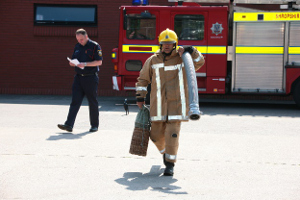For the purposes of the Equality Act 2010, sex is defined as being male or female, and is one of the key protected characteristics. The Act provides protection against direct or indirect discrimination based on sex discrimination against someone of either sex. As with the other protected characteristics, this protection applies both in employment and the provision of services
Although men experience sex discrimination, the most common prejudice, stereotyping, and discrimination based on sex is typically against women, and is known as sexism. It is based on widely-shared stereotypes and prejudices about what are seen as ‘normal’ roles for men and women; for example that women are carers and homemakers, while men are wage-earners and protectors. These stereotypes can lead to widespread assumptions about both sexes in occupations and employment and domestic life. The results include the following examples:

- In 2013, around 10.2% of nurses working in the UK were men
- In 2013 women hold 24% of senior management roles globally (a three point increase over the previous year but the same as in 2007)
- In 2013 just 19% of Board members around the world are women

- In 2012, only 4% of the UK's operational firefighters were women
- At least one in four women experience domestic violence in their lifetimes, and every year between 1 in 8 and 1 in 10 experience it.
Useful links
Women's Aid is the national charity working to end domestic violence against women and children. They support a network of over 350 domestic and sexual violence services across the UK.
Rape Crisis (England and Wales)
Rape Crisis (England and Wales) is the national umbrella organisation for a network of independent member Rape Crisis Centres, and campaigns to raise awareness of sexual violence, its prevalence and effects and, in particular, the importance and need for appropriate, high-quality and specialised support for survivors. They challenge attitudes and press for change. They work with other organisations, agencies and government departments to improve the response to those who are affected by and those who perpetrate sexual violence.
Rape Crisis Centres provide crisis and long-term specialised support, counselling and independent advocacy for women and girls of all ages who have experienced any form of sexual violence at any time in their lives; whether recently or in the past. Rape Crisis Centres are community-based, and independent of government and the criminal justice system.





